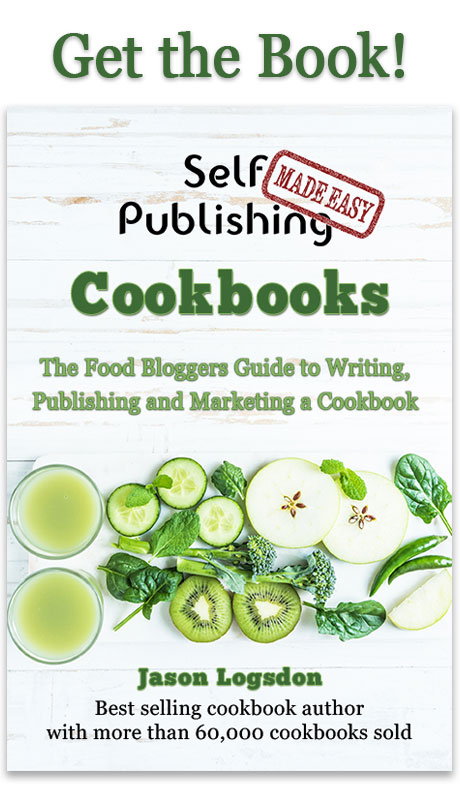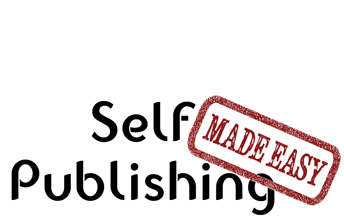Existing Users Sign In

Publishing Master Course Outline
- Self Publishing Master Course Introduction
- Before You Get Started
- Overview of the Publishing Process
- Determining Your Cookbook Goals
- Determine Type of Cookbook
- Consider a Sample Book
- Determine Book Subject
- What Makes a Good Cookbook Subject
- Brainstorming Cookbook Subjects
- Determine the Competition In a Cookbook Subject
- Finding Complementary and Competitive Products
- How to Generate a List of Keyword for Your Cookbook Subject
- Competitive Breakdown of an Amazon Sales Category
- Finally Choosing Your Cookbook Subject
- Research Cookbook Subject
- Choosing Your Avatars
- Researching the Cookbook Subject
- Researching Material for Your Cookbook
- Outlining and Notetaking Tools
- Write Cookbook and Recipes
- Keys to a Well Written Book
- Components to a Recipe
- Recipe Layouts
- Recipe Attribution
- Book Writing Tools
- How to Back Up Your Cookbook Files
- Photograph and Test Recipes
- How to Test Cookbook Recipes
- Food Photography Tips
- Proofread and Edit Cookbook
- Types of Cookbook Editing
- Tips for Self Editing Your Cookbook
- Finding Outside Editing Help
- Proofreading and Editing Resources
- Publishing Formats
- Types of Cookbook Publishing Formats
- Choosing a Self Publishing Printer
- Comparison of Print on Demand Cookbook Printers
- CreateSpace Cookbook Publishing Review
- IngramSpark Cookbook Publishing Review
- Ebook Publishers and Distributors
- Design Cookbook
- Cookbook Design and Formatting Guidelines
- Choosing A Great Cookbook Title
- How to Design a Cookbook Cover
- What Fonts to Use in Your Cookbook
- Cookbook Front Matter
- Cookbook Back Matter
- In-Book Marketing
- How to Design an eBook
- How to Create an ePub File
- Previewing and Testing eBooks
- Finding Outside Design Help
- Publish Cookbook
- How to Price Your Cookbook
- How to Write a Selling Book Description
- Determining Your Amazon Categories
- Choosing Publishing Keywords
- How to Publish on Amazon With CreateSpace
- How to Publish an eBook
- How to Publish On the Kindle
- How to Publish on the Nook
- How to Publish on iTunes
- How to Publish Your Book Through Smashwords
- How to Create and Sell a PDF on Your Blog
- Wholesaling Cookbook
- Methods of Cookbook Wholesaling
- Where to Wholesale Your Cookbook
- Developing a Wholesaling Line Sheet
- Promote Cookbook
- How to Launch Your Cookbook Successfully
- Getting Amazon Reviews
- Newsletter Promotions
- Free Content and Previews on Your Blog
- How to Get Blogs to Write About Your Cookbook
- General Articles
- All About ISBN Numbers
- How Do Cookbook Royalties Work?
- Financing Your Self Published Cookbook
- What is the Amazon Sales Rank?
- Cookbook Writing Resources
- Understanding Book Margins
- PDF Self Publishing FAQs
- How to Poll Your Blog Readers
- What is DRM
- Great Books to Learn About Food and Recipe Writing
- KDP Select - What Is It and Is It Worth it?
- Cookbook Design Programs
- Amazon Top Cookbook Reviewers
- Should You Publish Your ebook Directly or Use a Distributor
- Case Studies
- Sales Channel Revenue Breakdown with Modernist Cooking Made Easy
- Cookbook Writing and Marketing Templates
- Recipe Testing Worksheet Templates
- Review Requests Templates
- Cookbook Newsletter Promotion Templates
- Cookbook Manuscript Templates
Existing users please sign in to continue reading this article.
Welcome to Self Publishing Made Easy!
Publishing a Cookbook can be
Challenging
We will make the process clear and easy, allowing you to focus on creating a remarkable cookbook without any distractions.
Easily Navigate The Publishing Process
Benefit From a Community of Other Self Publishers
Maximize Your Distribution and Profit
We are the leading cookbook self publishing member site on the internet and are here to help you navigate the sometimes tricky path of self publishing. We provide step by step guidance to publishing your own cookbook as well as access to our active and helpful community of self publishers.
Or Get More Information about Self Publishing Made Easy
Disclosure : Some of the links in this post are affiliate links so if you click on the link and purchase the item, I will receive a commission.
Recipe Attribution
Click here to get great self publishing content via emailThere is significant ethical debate among food writers about recipe attribution. There are very clear ends of the spectrum but a whole lot of gray in the middle. It's pretty obvious that you shouldn't copy somebody's recipe verbatim and take credit for it, and it's also clear that you don't have to credit anyone if it's a recipe you came up with on your own. But what do you do if a recipe inspired you and you ended up changing several of the ingredients and the cooking method, does the original recipe writer deserve credit? What if a recipe you wrote was based on 3 or 4 different recipes, do all the writers deserve credit?
To start answering these questions, I want to first share the legal responsibilities you have. First, of course, a disclaimer! I'm a cookbook writer, not a lawyer, and any advice I give is just my opinion, before relying on any advice you should speak to an actual lawyer.
With that out of the way, the law basically says that a recipe writer doesn't own the list of ingredients or the method of cooking food, they only own the words describing it. So technically, I could get my favorite Bobby Flay cookbook, copy the ingredients from each recipe, rewrite the instructions, and legally publish it under my name. Here is the actual wording from the copyright office.
Copyright law does not protect recipes that are mere listings of ingredients. Nor does it protect other mere listings of ingredients such as those found in formulas, compounds, or prescriptions. Copyright protection may, however, extend to substantial literary expression - a description, explanation, or illustration, for example - that accompanies a recipe or formula or to a combination of recipes, as in a cookbook.
Because the bar is set so low to follow the law, it really becomes an ethical decision to determine "what is right." This means that everyone needs to make their own decisions about what they feel comfortable doing. And just like everything else where individuals have to determine what they think is right, there is a ton of disagreement.
I personally try to treat other recipe writers as I would like to be treated myself, or like I would treat a friend if it was their recipe. If a recipe directly inspires me I will give credit to the original writer, even if I've changed the seasoning, cooking method, or other large parts of the recipe. If I'm researching a specific dish, I'll usually pull up several online recipes making that dish to get my bearings. Unless one of those really jumps out in a unique way, I don't credit all the other recipes because they were just used in aggregate. I've found that crediting other recipe writers is also a great way to expand your network, most writers are excited to hear that you were touched by a recipe they wrote.
Many food bloggers deal with this type of ethical question when writing on their blogs and many of the same considerations should go into effect. I highly recommend you choose a method you are comfortable with and stick to it, both on your blog and in your books. For some good information and views from both sides, I recommend reading the comments from Adjusting a Recipe Doesn't Make It Yours (Dianne Jacob also has a great book on writing cookbooks called Will Write for Food) and the article and comments for Recipe Attribution from the Food Blog Alliance.


